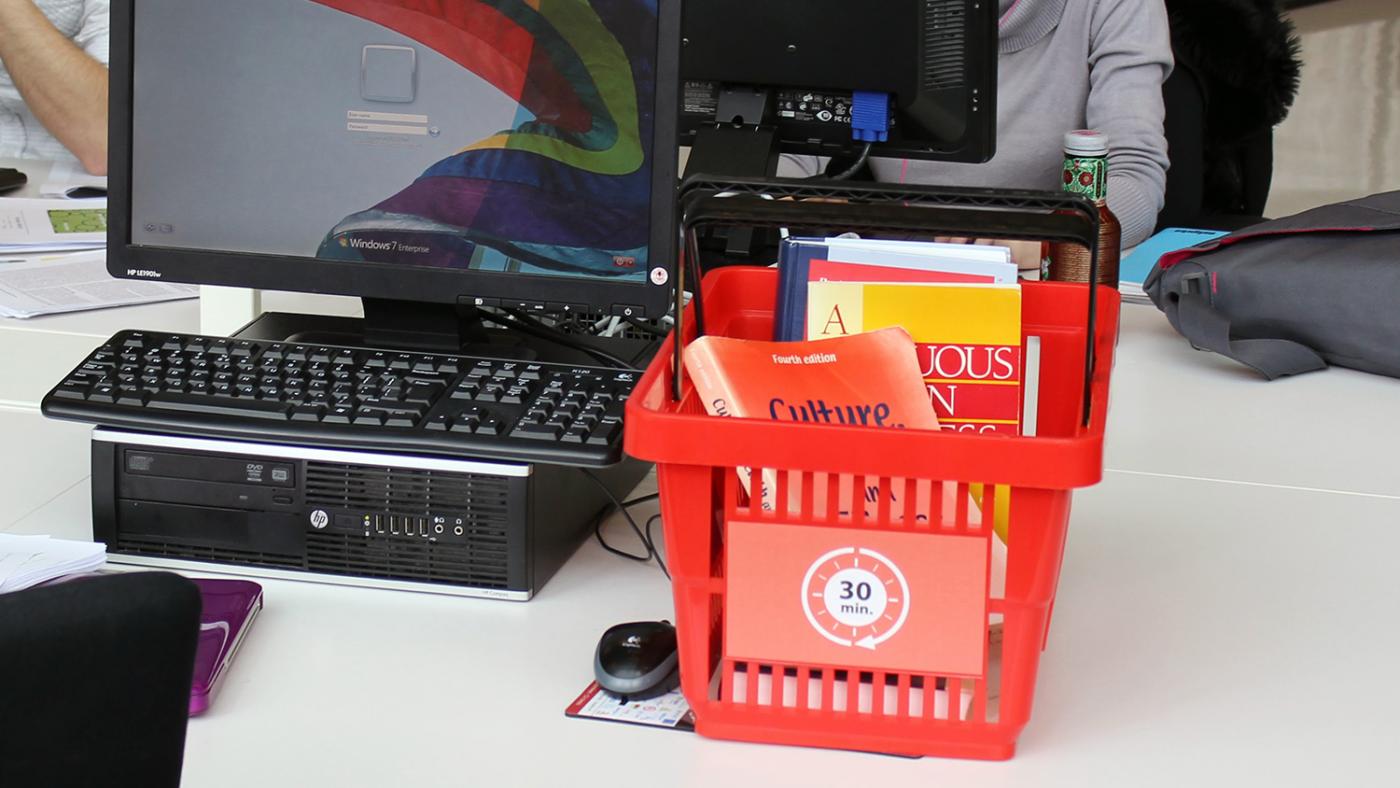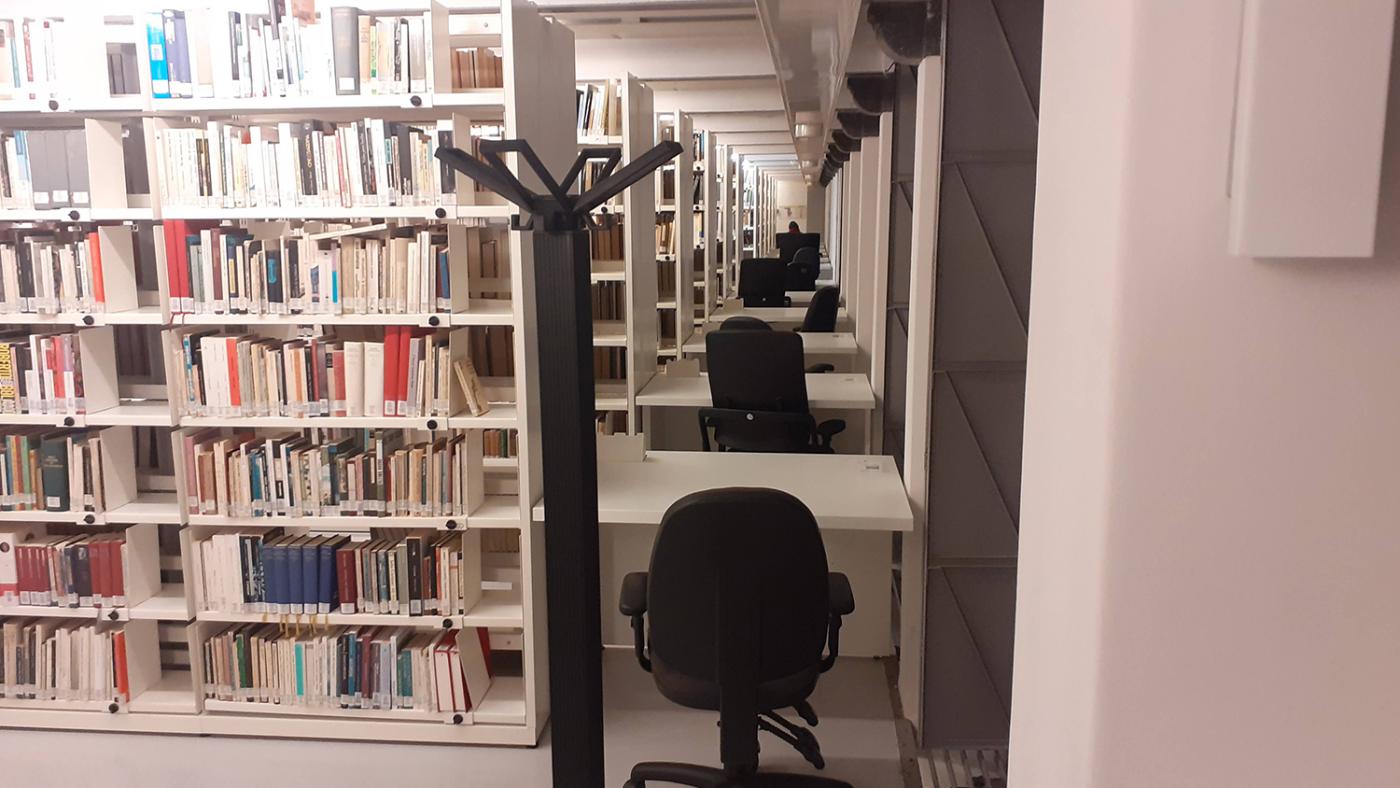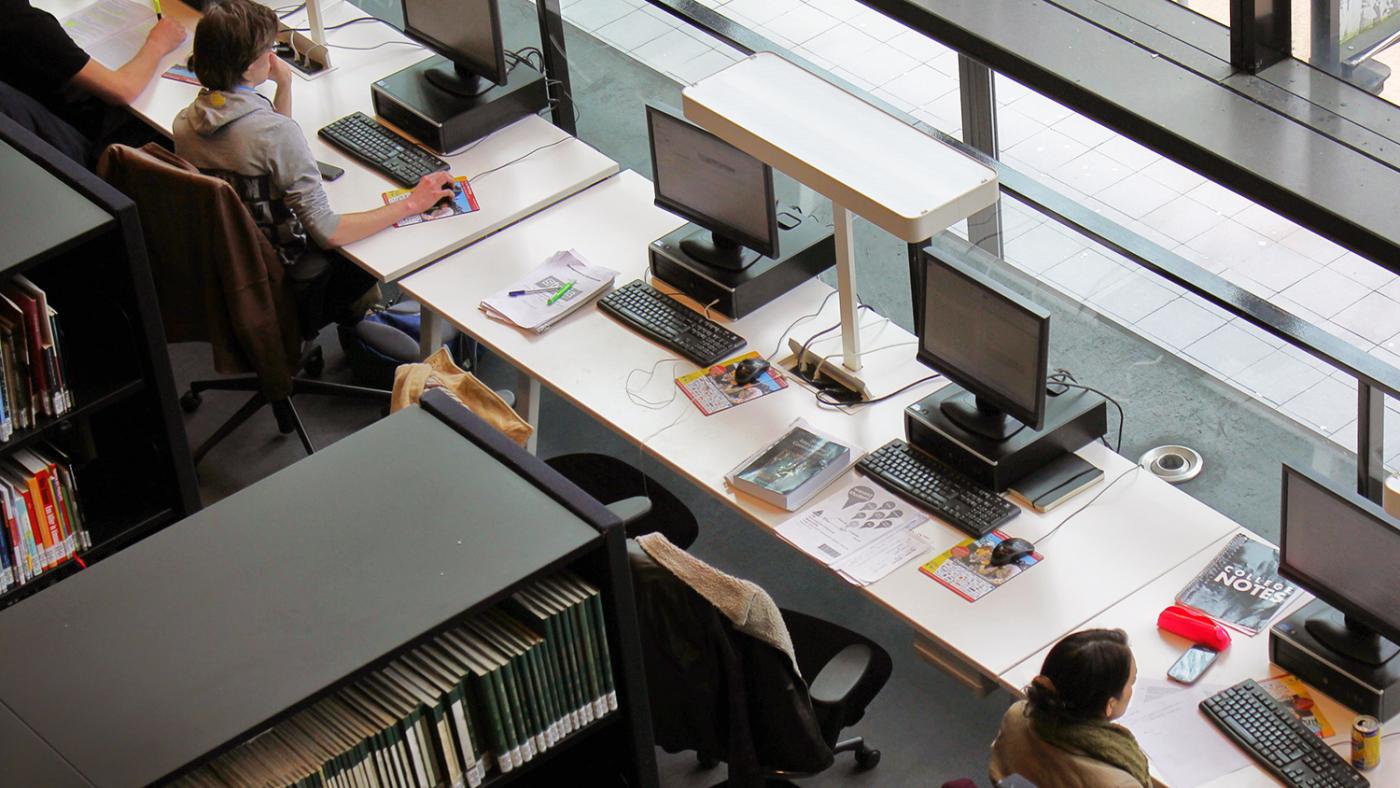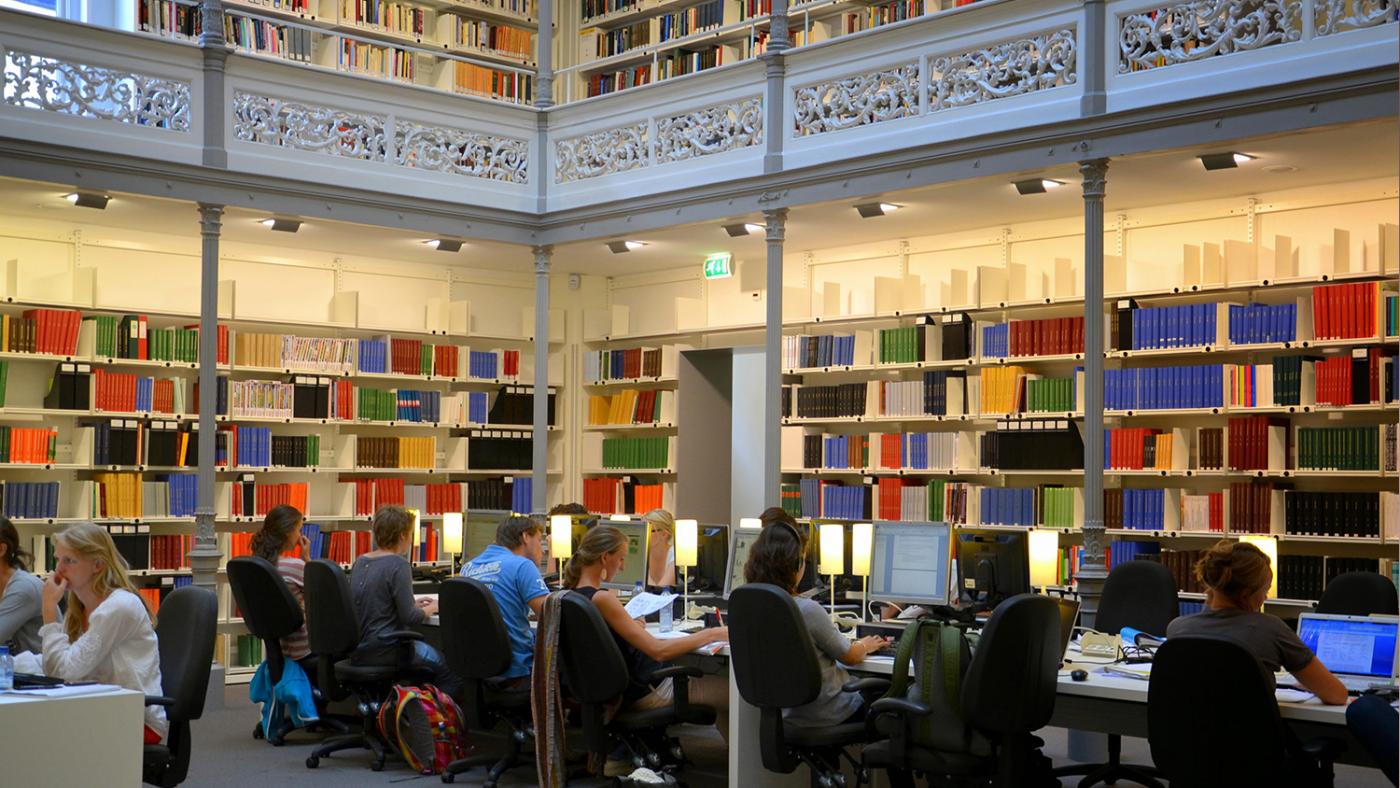Presence will be enforced at city centre library
Exam week: empty study spots in the library due to reservation system

Some of the study spaces in the two university libraries are freely accessible but most must be reserved. The reservation system was introduced during the pandemic because only a limited number of students were allowed to study at the library at the time. Research showed that the reservation system was well received, so it has been partially retained.
Students and employees can reserve a place online two days in advance, for at least half an hour. Those who need more time can also study for an hour, a morning or a whole day. Once a person reserves a spot, they receive a QR code with which they can check in so that the study space is shown as "occupied" in the reservation system.
That's handy, but the system has its shortcomings. DUB verified if all the reserved places were indeed occupied and not all of them were. Veterinary Medicine student Niels (21) knows how that can be done. “I often reserve a place a day in advance from nine in the morning. I can check in from home. This makes the system think that I am there but I am actually still in bed. My place remains available to me, so I can study later that morning.” Niels acknowledges that he is “more ambitious" when he books a spot than on the day he is supposed to study.

Surveillance
Before the reservation system was introduced, students who wanted to study at the University Library were already at the door before they opened. Even then, not everyone was polite regarding the spot they secured. People would mark their spots by hanging a coat on the chair or leaving textbooks on the table, and then walk away. To combat this behaviour, places that were vacant for a long time were cleared out and the items were placed in a red basket. Wagenaar: “That was not a nice system, it led to difficult situations if things got lost.”
Now, reservations are cancelled if the person does not check in online half an hour after the reserved time. A new measure was introduced at the beginning of the academic year to prevent students from checking in from home: on exam weeks, employees check twice a day whether people are in their reserved seats. This enforcement only takes place in the city centre library (for now) because the problem is much less prevalent in the Science Park library.
If the employee doesn't find anyone at a spot that's been booked online, they cancel the reservation, freeing it up to another student. They will only cancel the reservation if the student is supposed to have arrived at least half an hour before. "After all, running late happens to the best of us. In case of force majeure, we always keep a few places available.”

Pros and cons
The library knows that some students check in at home and only show up a few hours later. "They are not supposed to be doing that, of course," says Mario Wagenaar, team leader of the library's Public Services Department. “If you reserve a place, we expect you to come. Countless others would like to have that spot, especially on exam week.”
When the library is fully booked, Art History student Josefien (22) sometimes tries to sit in a spot that's been reserved online but not occupied by anyone. “However, that often led to awkward moments when the person who had reserved the spot suddenly showed up.”
The university wants to allow everyone to study in the library, says Wagenaar. “But hey, what's fair? Letting students book a spot and then not show up or make all places available for students who spontaneously decide to study in the library? That's the tricky part of the whole story.”

Bypassing
Josefien doesn't try her luck in empty spots that are officially booked anymore, but she usually manages to get a non-reserved spot. “There is a specific area in the University Library where I like to sit. You have to arrive early if you want a spot there, because they cannot be reserved. People often go home at 5:00 and 7:00 pm sharp – to have dinner, I guess. That's when I find a place."
Evi (23), who studies Dutch Language & Culture, has a similar tactic. “Every hour and half an hour, places that have not been checked in become available. If you are quick, you can reserve such a vacant spot.”
There also seems to be a loophole in the online reservation system, according to Josefien. “Officially, you can only make reservations two days in advance. But at eleven o'clock in the evening, you can suddenly make a reservation three days in advance. Then, there is always room.”
Hour limit
The enforcement seems to be working. “When we first started checking, about eighty of the more than 350 places were empty for each round. Currently, it is between ten and twenty. Students seem to have realised that we are enforcing their presence, so they've adjusted their behaviour accordingly. We have not heard any negative comments from the students, not even during enforcement.”
Another behavioural pattern that leads to reserved seats being empty is that many students do not check out when they are done studying. To this end, the university is considering setting a maximum number of hours that someone can reserve per week. “They already do that at other universities, where you can book a place for a maximum of 40 hours per week. That would be an incentive to check out if you leave early.”
Alternatives
Laura (21), a History student, appreciates that the university is enforcing the rules. “Maybe they can block people with a habit of not showing up so that they can no longer reserve a spot,” she suggests.
“We have looked into such a punishment system, but that is not technically possible due to privacy issues,” explains Mario Wagenaar. It isn't possible to create more spots in the library either because of air circulation and safety requirements. “So now we have to rely on checking. Realistically, there will never be enough places to meet demand during peak times, such as during the day on exam week.”
His advice to students who like studying in the library: “The 1,500 study spaces available in the two libraries are popular, so be there on time. If you can't make your reservation, cancel it because that frees up a space for another student. In addition, students can go to an alternative study space at the university. There are more than 6,000 in total.”